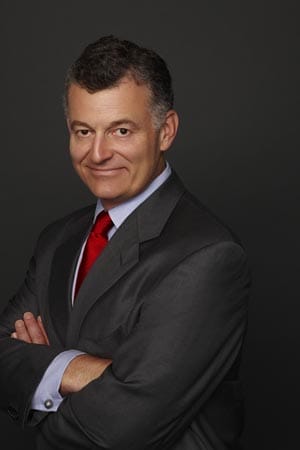Debate. Discussion. Deep thinking.
That’s what William Lauder, W’83, executive chairman of the Estée Lauder Companies, wants to get out of his company’s executive education initiatives.
And at Wharton, he says, that’s exactly what he gets. Estée Lauder has been sending its most senior executives to Wharton since 2004, and even in the midst of a still-recovering economy, the company has remained as committed as ever to executive education.
We here at Wharton Magazine recently sat down with Lauder (in his stunningly beautiful Manhattan office) to ask him why he believes so strongly in high- level executive education—and what he believes his executives gain from their experiences here at Wharton.
Tell me how your partnership with Wharton got started.
The relationship was formed out of a number of different things—primarily our longstanding relationship with Wharton and our to desire to start changing the nature of our executive education program for our most senior executives. Instead of making those programs just happenstance, whenever the opportunities might occur, we really wanted to make it a more thorough and engaging experience.
What sparked the desire to create programs specifically for your senior-level executives?
In the past, these programs had always been aimed at the next level down—or even the level below that. So instead of the most senior executives, we were targeting the brand managers or the regional presidents or even a level or two below that. But then we realized that we had been assuming a certain level of education and executive education experience at the level above, and it just wasn’t consistent. We had people working with people who had been through a common experience, and yet their bosses hadn’t. It just made sense for us to bring in the next senior level of the company up to that same level, so they could speak the same language and work more effectively as peers.
You could have chosen a business school closer to your New York headquarters. Why Wharton?
The primary reason for going to Wharton was its reputation in global leadership, and its reputation as a leading center of business education. It is forward-looking in its research and offers excellence in its teaching and faculty. There’s also the long-term relationship that my family has had with Penn and Wharton. Finally, there was the accessibility of the Penn campus itself. Most of our executives are located in New York, and Penn is an easy train trip for most of them. For those who live in New Jersey, it’s an easy drive. And even for those outside the U.S., Philadelphia offers a very accessible airport.
How do you measure the success of these programs?
Our level of success is primarily based on this question: “Did we stimulate some level of thought—some good thoughts about potential action at the executive level?” We want the professors to raise issues with us, stimulate the thought process and act as moderators as the executives debate and discuss and apply their knowledge and expertise to help us come to a decision. A lot of the professors we’ve worked with have stimulated a great deal of thought and forced us to look at our businesses on a number of different axes.
The dynamic between the faculty and your executives must be very interesting.
It’s a very healthy debate. With the executives, you have an average age of well over 40, not to mention 20-something years’ worth of experience, and the result of that is that some of those executives have as much hands-on experience [in any particular field] as the professors do. So there isn’t the same kind of dynamic as you might see in a normal classroom environment. Oftentimes, it seems the role for those of us living in the trenches is to perhaps bring the professors out of the clouds and into the harsh reality of the real world [laughs]. But honestly, from my experience, the professors enjoy dealing with a level of experience that they don’t see in their normal classroom environment, and it should be said that sometimes the executives will debate the academic facts with the faculty at their own peril. What they’re trying to do, and what our goal is, is to stimulate thought and conversation … so we can make better informed decisions and strategies.
How do you keep your programs fresh, challenging and interesting?
It’s about advancing the agenda and not repeating what you’ve already done. The most important thing is to remember that there are a number of different faculty in a number of different disciplines who have helped us change the way we look at our company and our performance and our metrics. In a number of cases, they’ve given us a better way to think about the different things that we do. But then there are also the very tangible benefits of having brought many different executives from different brands together in an off-campus environment so they can work in a collaborative manner with their peers—people they may not have otherwise spent time with.


























